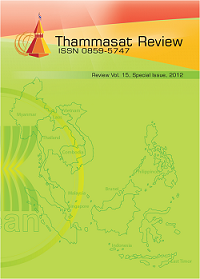Reinterpreting the Role of Judiciaries in Promoting Human Rights: The Philippine Supreme Court’s Writ of Amparo and Writ of Habeas Data against Extrajudicial Killings and Enforced Disappearance
Abstract
In 2007, the Supreme Court of the Philippines made a bold move by
reinterpreting its role in adjudication by promulgating the rules of procedures for the issuance of the Writ of Amparo (literally meaning, “to protect”) against extrajudicial killings and enforced disappearances; and in 2008, the Writ of Habeas Data (literally,
to “show the information”) to protect the right of informational privacy.
In this paper, I analyze th reinterpretation of the Philippine Supreme Court of its role in protecting human rights particularly in regard to the fundamental right to life, liberty and security of persons and its promulgation of rules of procedure for writs designed to protect such rights. I will first explain the impetus for this phenomenon—the persistent problems of enforced disappearances and extrajudicial killings in the Philippines. I shall discuss the investigations done by the UN Special Rapporteur, the creation of national government commissions tasked to investigate and propose recommendations, and the moves that the Supreme Court undertook. I deal with the theoretical problem of the move beyond a passive court to one that is not merely active but proactive leading towards an analytical inquiry on a type of government setup where the judiciary is proactive in human rights protection. I theorize that this is of political issues. I seek to pose a question for further deliberation: will the judicialization of politics lead to a of the judiciary? I in the affirmative. I shall end with a conclusion that the Supreme Court of the Philippines has advanced the role of judiciaries in human rights promotion through its power of constitutional interpretation thus furthering its political influence in national affairs. Being a major player in high politics—the Supreme Court now consideration in future institutional analyses of Philippine politics.
Downloads
How to Cite
Issue
Section
License
The opinions and ideas expressed in all submissions published in Thammasat Review are solely that of the author(s) and do not necessarily reflect that of the editors or the editorial board.
The copyright of all articles including all written content and illustrations belong to Thammasat Review. Any individuals or organisation wishing to publish, reproduce and distribute a particular manuscript must seek permission from the journal first.








